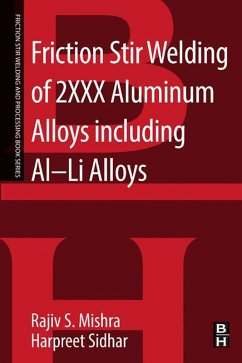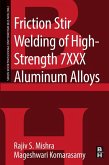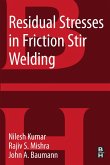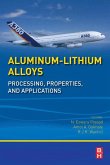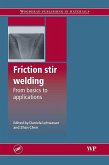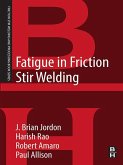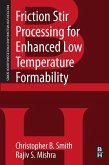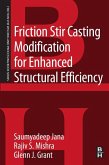Friction stir welding has demonstrated significant benefits in terms of its potential to reduce cost and increase manufacturing efficiency of industrial products including transportation, particularly the aerospace sector. The 2XXX series aluminum alloys are the premium aluminum alloys used in aerospace.
The book includes discussion of the potential future directions for further optimization, and is designed for both practicing engineers and materials scientists, as well as researchers in the field.
- Provides comprehensive coverage of friction stir welding of 2XXX series alloys
- Discusses the physical metallurgy of the alloys
- Includes physical metallurgy-based guidelines for obtaining high joint efficiency
- Features illustrated examples of the application of FSW in the aerospace industry
Dieser Download kann aus rechtlichen Gründen nur mit Rechnungsadresse in A, B, BG, CY, CZ, D, DK, EW, E, FIN, F, GR, HR, H, IRL, I, LT, L, LR, M, NL, PL, P, R, S, SLO, SK ausgeliefert werden.

